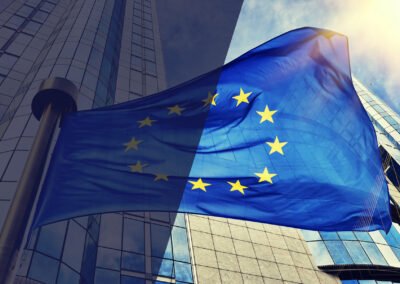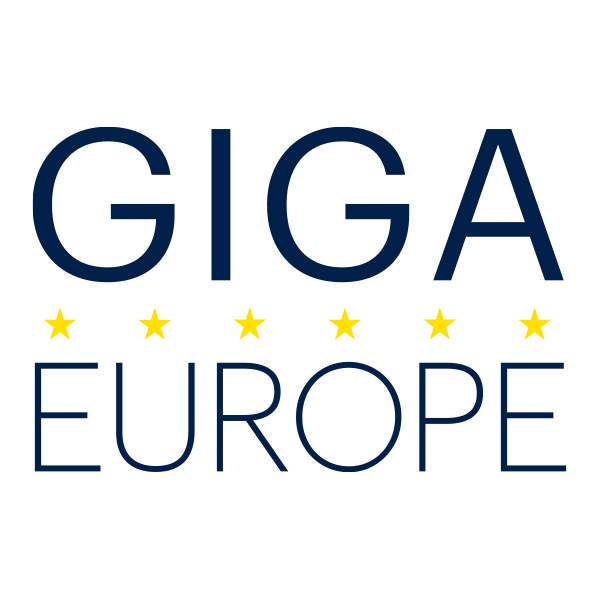By Irina Varlan, Managing Director of GIGAEurope
Brussels – 20 June 2021 – Digital transformation is having a profound and irreversible impact on our lives, societies and economies at large. Through very high capacity networks, Gigabit connectivity, 5G and emerging data-driven technologies – like AI and IoT – play a crucial part in a new wave of digital services, productivity and growth. As the world becomes more closely connected and digitized, a new sense of vulnerability arises. Trust in democratic processes, governments and corporations is being challenged by disinformation, privacy incidents, ransomware attacks and data breaches. In 2020, the data breach crisis escalated, as more records were compromised in 12 months than in the previous 15 years combined.
The pandemic has accelerated investment in digital transformation. Many companies – SMEs in particular – felt the pressure to implement digital business continuity measures quickly in response to the pandemic – or risk going out of business. In a fast-tracked digital transformation, implementation of emerging technology may race ahead of stakeholder expectations regarding key drivers of trust – like ethics, data privacy, cybersecurity, and transparency. Consequently, organizations tread an increasingly thin line between accelerating data-driven ambitions and safeguarding reputation and trust. A recent global trust survey suggests that trust in the technology sector has reached an all-time low. The same survey shows significant decreases in trust for key digital technologies such as AI, IoT and 5G in Europe.
The European Commission, therefore, rightfully made trust in technology a priority in its Digital Strategy. As EU Commissioner Margrethe Vestager recently put it, the level of trust is correlated with the level of digital skills. An important tool to achieve this goal is the Next Generation EU recovery fund which allocates 20% to digital, including fostering digital skills. The EU Skills Agenda sets a concrete target of basic digital skills for 70% of European adults by 2025. The forthcoming inter-institutional Declaration of Digital Principles seeks to embed European digital values in government public policies and regulations.
Succeeding in this space will determine how far Europe can go in achieving its digital objectives. Lack of trust often impedes rapid up-take of new services. Building trust is a complex process that demands cooperation between governments, companies and civil society. It is, therefore, positive that the European Commission uses a multi-stakeholder approach to ensure that technology-driven transformation is human-centred, inclusive and sustainable. Such a model can, for example, be seen in the EU Connectivity Toolbox in response to disinformation around 5G networks. To increase trust and acceptance for such services, it proposes a targeted multimedia campaign driven by national governments. This will provide evidence-based information to educate the wider public about 5G implementation. Public authorities and industry stakeholders would combine their expertise to translate scientific and technical knowledge on 5G into every-day language.
A natural starting point for rebuilding trust in an inclusive digital transformation is with us as connectivity providers. Connectivity is the entry point to the digital world and therefore needs to be inclusive, resilient, secure and trusted to ensure trust from the end-user. Key trust elements related to connectivity are: refrain from surveilling internet traffic and from blocking and throttling network traffic, as well as ensure an ‘open internet’ by treating internet traffic categories equally (e.g. ‘net neutrality’). Providers should also strive to provide adequate network security against cyberattacks (in Q1 2021, the number of DDoS attacks dropped by 29% compared to the same period in 2020, but increased by 47% compared to Q4 2020). Due to the principle of confidentiality of communications – enshrined in European legislation – connectivity providers have a long history of safe-guarding users’ personal data. This is complementary – so called lex specialis – to horizontal legislation such as the General Data Protection Regulation (GDPR). The use of anonymized metadata has proven important during the pandemic to inform and support exit-strategies.
EU digital policies and regulation provide the base for greater trust in technology, in the context of digital transformation. However, policy makers, companies and civil society should work together to translate legal principles into clear, transparent and actionable information to citizens. Businesses and governments alike who are at the forefront as first movers in this space have an important role to fill. They will need to foster greater trust by demonstrating transparency, accountability and customer-centricity in business-to-consumer or government-to-citizen communication, in order to deliver on the promises of emerging technology for Europe’s Digital Decade.
Related to the @EURACTIV-@GIGAEurope Digital Debate ‘Trust in the Digital Decade’ on 21 June, GIGAEurope MD @IrinaVarlan discusses how we can build trust in digital among #EU citizens. Read the full piece here ➡️ https://t.co/4A7aX8VkqC #eadebates #DigitalEU
— GIGAEurope (@GigaEurope) June 28, 2021
RELATED ARTICLES

Do We Have All the Right Networks for the Future?

Be Courageous, Confident, & Curious: Insights for Women in ICT

On the Digital Highway – Destination: a Competitive Europe

EU Connectivity Needs Fast Rollout – Policies Must Aid Objectives

Interconnecting the Connectivity Talks

The EU made the case for digital – now skills must follow

Precision Agriculture: Leveraging digital tools to respond to a dual imperative

Enabling the Enablers: A Path to Europe’s Green Transition

How to ensure no European is left behind?

Capturing Europe’s Connectivity Momentum

